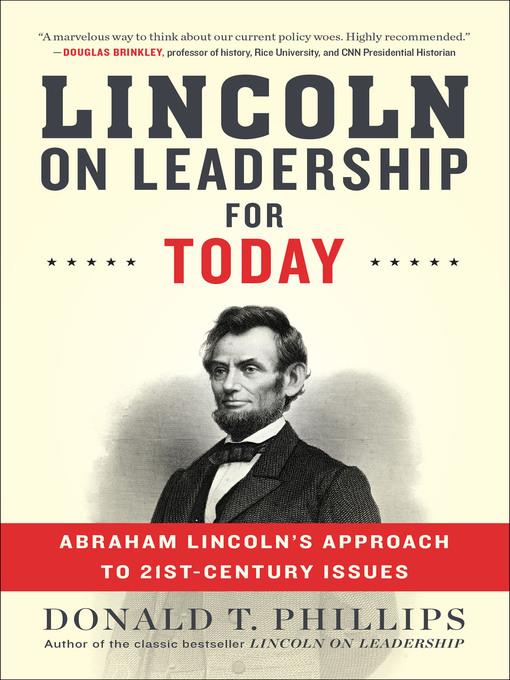
Lincoln on Leadership for Today
Abraham Lincoln's Approach to 21st-Century Issues
کتاب های مرتبط
- اطلاعات
- نقد و بررسی
- دیدگاه کاربران
نقد و بررسی

November 7, 2016
Phillips’s topical follow-up to his earlier Lincoln on Leadership begins by describing the nine-year-old Abraham Lincoln at his mother’s deathbed, listening to her last words: “Be good to one another.” That sets the tone for this intelligent and often moving look at one of the nation’s greatest presidents. Phillips portrays Lincoln as a gentle and sensitive boy who became the same type of leader, trying to maintain the Union in his early presidency while dealing with high casualty rates and soldiers gone AWOL. While Lincoln was a conscientious congressman who often made bipartisan overtures, he also took care to denounce the “evil spirit” of corruption he saw in Washington, D.C. Elsewhere, Phillips recalls a momentous biblical quotation from one of Lincoln’s early senate campaigns, “A house divided against itself cannot stand.” Using his extensive knowledge of Lincoln, Phillips makes convincing cases throughout for what the 19th-century statesman’s opinion would be on a wide array of issues faced by the 21st-century U.S., including climate change, torture, immigration, and equal pay for women. For readers who find present-day politics almost too much to contemplate, Phillips’s closing vision of Lincoln witnessing the “current state of affairs” will be especially poignant and bittersweet. Agent: Bob Barnett, Williams & Connolly.

December 1, 2016
An author who has published frequently on leadership and leaders--from the Founding Fathers to Vince Lombardi--returns with his second book about Lincoln's leadership (Lincoln on Leadership, 1992).Phillips (The Clinton Charisma: A Legacy of Leadership, 2007, etc.) follows Lincoln's professional career chronologically, from lawyer to president. After each chapter, the author offers his opinions about how Lincoln might handle the most prominent political and social issues of our day, including abortion, capital punishment, international relations, and public education. The biographical chapters are well-researched, although Phillips rarely finds anything negative to say about Lincoln. As a metaphor for Lincoln's strength (physical and otherwise) he continually reminds us of Lincoln's ability to balance an ax at the end of each extended arm. It's risky business, though, yanking a character from a previous century into our own and speculating about what he or she would do. It forces us, in this case, to imagine a leader who died in 1865 sitting once again in the White House and dealing with issues in contexts that would entirely baffle him. In his "Lincoln on Leadership" sections, the author is forced, of course, to offer qualifiers like "My feeling is," "My sense is," and the like. Throughout, Phillips asserts that Lincoln would be a Democrat of today, supporting women's rights, voting rights, public education, environmental protection, action on climate change, and public health care. He would, however, in the author's view, allow states to keep the Confederate flag, permit capital punishment in heinous cases, find a "middle ground" on abortion, and keep the Electoral College. From Lincoln's behavior, the author extracts a number of leadership principles, including the importance of incremental change and working with your opponents. Deeply admiring biography mixed with much supposition that ranges from thought-provoking to ridiculous.
COPYRIGHT(2016) Kirkus Reviews, ALL RIGHTS RESERVED.

























دیدگاه کاربران